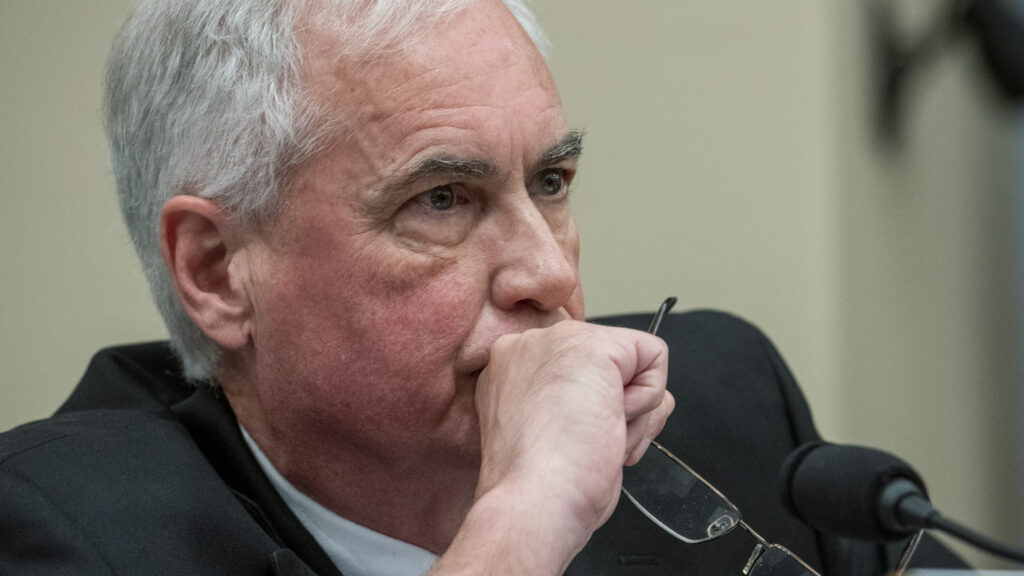WASHINGTON — Republicans on Thursday sought to turn around transgender advocates’ arguments that gender-affirming care is a personal health care decision.
The LGBTQ+ community has long pressed Democrats to frame their defense of transgender rights, and particularly gender-affirming care for minors, as a basic right for a person to pursue with their medical providers — and that conservative bans on access represent hypocrisy from traditionally small-government Republicans.
advertisement
“There needs to be this greater emphasis on freedom … the ability of any person, young people, any parent, to make the right decisions for themselves, their families, and their kids,” said Kellan Baker, executive director of the Whitman-Walker Institute, a network of LGBTQ-focused providers, told STAT earlier this year.
During a Thursday hearing before a House Judiciary subcommittee, Republicans fought to undermine that argument.
“The family is the most fundamental governing unit it’s established, by nature itself. So I think it therefore follows that parents have a fundamental, natural right to raise their children according to their own best judgment,” said Rep. Tom McClintock (R-Calif.), before arguing all gender-affirming care for minors should require parental consent.
advertisement
However, that is not the limitation up for debate in many states. Twenty-one have passed bans on gender-affirming care for minors — regardless of parental wishes — and seven more are considering the move, according to a tracker by the Human Rights Campaign.
Democrats were quick to point out the difference.
“The idea that politicians are more qualified to judge the medical value or necessity of gender-affirming care than every major medical organization is absurd,” said Rep. Mary Gay Scanlon (D-Penn.). “Holding a hearing to substitute far-right ideologies for parental judgment exposes the rank hypocrisy of the party claiming to value individual freedom and small government.”
The committee’s top Democrat, Rep. Jerry Nadler (D-N.Y.) called the hearing an “all-time low” for Republicans.
Lawmakers heard emotional testimonies from Chloe Cole, a woman who had detransitioned, and Paula Scanlan, a former University of Pennsylvania swimmer who competed alongside Lia Thomas, a transgender woman. They also heard from experts who stressed research showing the significant mental health benefits of gender-affirming care and the therapy patients undergo when considering transitioning.
Cole’s story is “the exception, not the rule,” said Shannon Minter, legal director of the National Center for Lesbian Rights. “We know that 98% of young people who receive these treatments continue to receive them into adulthood.”
House Republicans recently attached gender-affirming care limits to the health department’s 2024 spending bill. The provision would bar Medicare, TRICARE, and Medicaid from using federal funds to pay for hormone therapies and gender-affirming surgical procedures. That ban, which Democrats have pledged to fight, is on top of hundreds of bills introduced in state legislatures to limit transgender health care and participation in sports.
Republican contenders for the 2024 presidential race including Donald Trump and Florida Gov. Ron DeSantis have also promised nationwide limits on transgender rights.
“What we have seen today is what we’ve been seeing this entire Congress, is an effort by my Republican colleagues — and indeed, some of the more extreme voices in the Republican Party — to keep Americans on a treadmill of rage,” said Rep. Veronica Escobar (D-Texas).
The issue does seem to be resonating with conservatives: 63% of Republican parents polled by NPR/PBS/Marist in March said they support criminalizing gender-affirming care for minors. However the same poll found that moderate and independent support for gender-affirming care has actually grown over the past year. Fifty-six percent of independent voters opposed criminalizing gender-affirming care for minors in March, compared to 45% who opposed bans in an NPR/Ipsos poll last June. Democrats’ opposition to limits remained steady at just under 70%.
States’ bans and suggested limits “do something that has just never been done before in this country, which is [to] single out a particular group of people, transgender young people, in order to deny them medical care,” said Minter.

